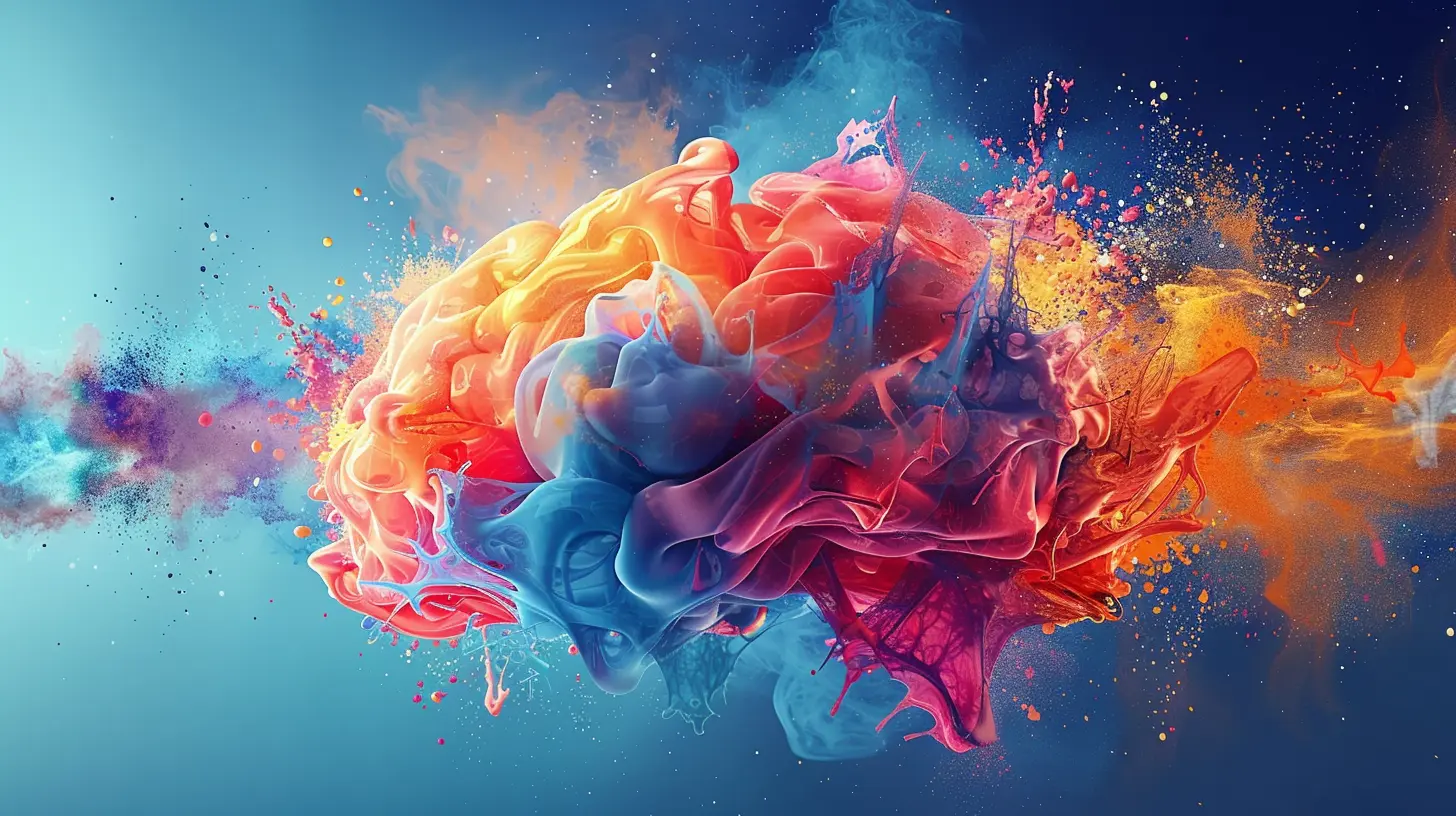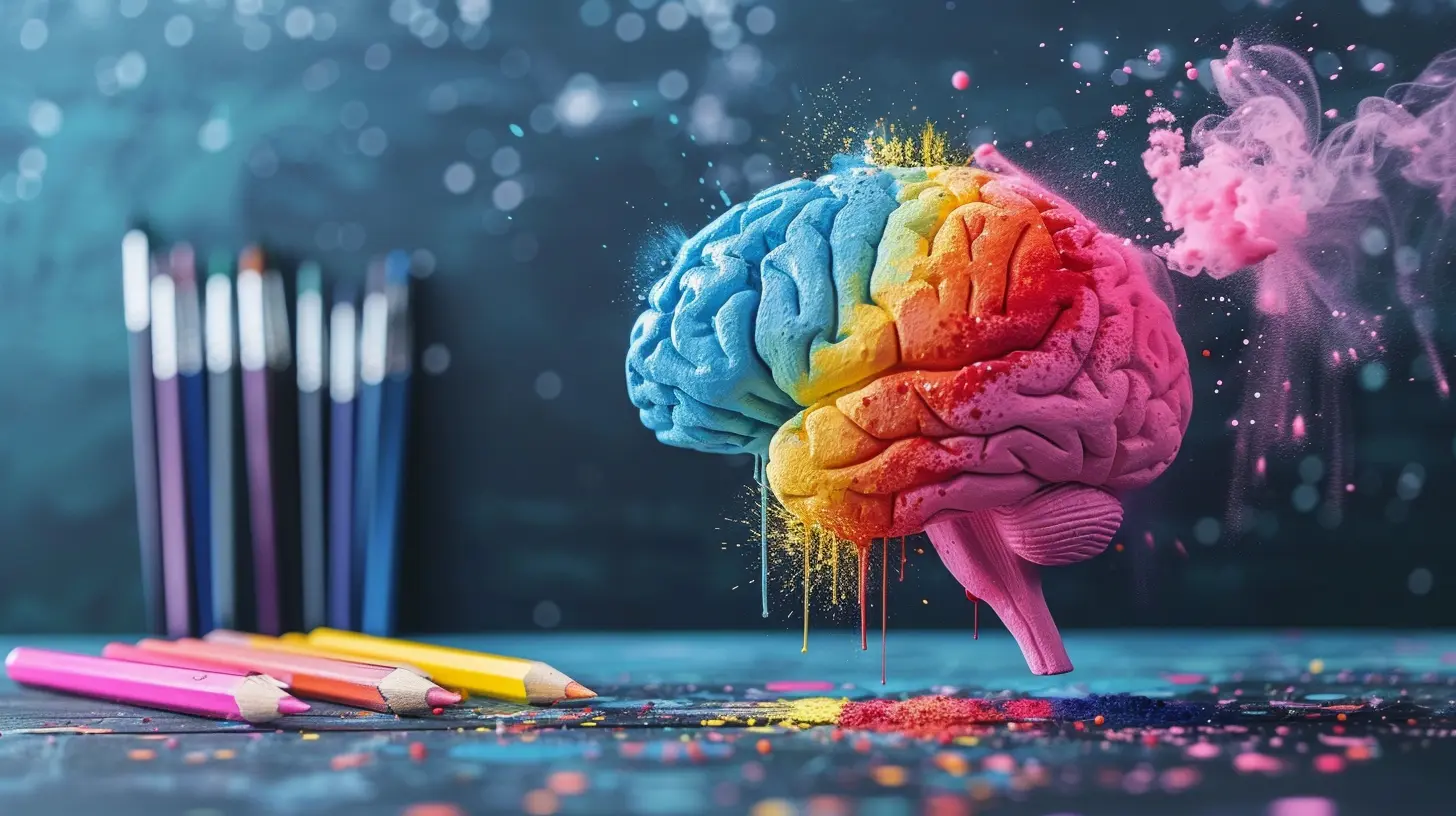The Science Behind Creativity and Cognitive Development
19 July 2025
Ever wondered why some people seem to effortlessly come up with creative ideas, while others struggle to think outside the box? Or why children’s minds are like sponges, absorbing everything around them at lightning speed? Both creativity and cognitive development are deeply rooted in the way our brains process information. But what exactly is the science behind it all?
In this article, we're going to explore how creativity and cognitive development are intertwined, peeling back the layers of our minds to understand how we produce innovative ideas and grow intellectually. So, buckle up, because we’re diving deep into how these processes work, and how you can tap into them to boost your own creative potential.

What is Creativity?
Before we get into the science, let's define creativity. In simple terms, creativity is the ability to produce something new and valuable. It could be an innovative idea, a unique solution to a problem, or even a piece of art. But creativity isn't just confined to artists or inventors; it's a trait that everyone possesses to some degree.The Two Types of Creativity: Divergent and Convergent Thinking
Creativity is often broken down into two main types: divergent thinking and convergent thinking.- Divergent thinking is what most people think of when they hear the word "creativity." It's the ability to generate multiple solutions to a problem, think in abstract ways, and come up with original ideas. Imagine brainstorming a hundred different uses for a paperclip — that's divergent thinking in action.
- Convergent thinking, on the other hand, is more about narrowing down those ideas to find the best one. It's the ability to analyze, refine, and focus on a single solution. This kind of thinking is just as important because, without it, your ideas might never come to fruition.
Creativity and the Brain
So, what's happening in your brain when you're being creative? Creativity isn't just about one specific "creative" part of the brain, but rather the interaction between several areas. Two brain networks play a crucial role here: the default mode network (DMN) and the executive control network (ECN).- The Default Mode Network (DMN) is active when you're daydreaming, letting your mind wander, or thinking about the future. This is where a lot of divergent thinking happens. When you're not focused on a task, your brain is free to make new connections, which is why some of the best ideas come to us in the shower or right before bed.
- The Executive Control Network (ECN) kicks in when you're focused on a task or solving a problem. It helps with convergent thinking — evaluating ideas, refining them, and deciding which ones are worth pursuing.
Interestingly, creative people are often able to switch between these two networks more fluidly than others, allowing them to come up with novel ideas and then focus on making them work.
Cognitive Development: Growing the Brain’s Toolkit
Now, let’s shift gears and talk about cognitive development. Simply put, cognitive development is the process by which our brains learn to think, reason, and understand the world around us. It’s how we acquire knowledge and improve our problem-solving and decision-making skills over time.Piaget’s Stages of Cognitive Development
One of the most well-known theories of cognitive development comes from Swiss psychologist Jean Piaget. According to Piaget, children go through four stages of cognitive development, each with its own unique characteristics. These stages are:1. Sensorimotor Stage (0-2 years): In this stage, infants learn about the world through their senses and actions. They develop object permanence — the understanding that things continue to exist even when they can't be seen.
2. Preoperational Stage (2-7 years): Children in this stage start to use language and symbolic thinking, but they tend to be egocentric, meaning they have trouble seeing things from others' perspectives.
3. Concrete Operational Stage (7-11 years): Here, children begin to think logically about concrete events and understand the concept of conservation (the idea that quantity doesn't change just because its appearance does).
4. Formal Operational Stage (12 and up): In this final stage, individuals develop abstract thinking and hypothetical reasoning skills, allowing them to solve complex problems and think about future possibilities.
The Role of Neuroplasticity in Cognitive Development
A key factor in cognitive development is neuroplasticity, which refers to the brain's ability to change and adapt throughout life. When you're learning something new, your brain is literally rewiring itself, forming new connections between neurons. This is especially true in childhood, when the brain is highly malleable, but neuroplasticity continues into adulthood as well.For instance, when you learn how to play a new instrument or pick up a new language, you're strengthening certain neural pathways and creating new ones. This is why continued learning and mental challenges are crucial for maintaining cognitive health as we age.
Creativity and Cognitive Development: The Connection
So, how do creativity and cognitive development relate to each other? In many ways, they’re two sides of the same coin. Cognitive development lays the foundation for creative thinking, and creativity, in turn, helps stimulate further cognitive growth.Think of cognitive development as building a toolkit — the more tools (or cognitive skills) you have, the more creative solutions you can come up with. On the flip side, engaging in creative activities can actually boost cognitive development by encouraging flexible thinking, problem-solving, and the exploration of new ideas.
The Science Behind Boosting Creativity and Cognitive Development
Now that we’ve covered the basics, let’s dive into some strategies grounded in science that can help boost both creativity and cognitive development.1. Embrace Play and Exploration
Play is one of the most powerful tools for cognitive development, especially in children. Through play, kids learn to experiment, explore different scenarios, and solve problems. But play isn't just for kids. Adults can benefit from play too, whether it’s through hobbies, games, or simply allowing time for unstructured exploration.2. Practice Mindfulness and Meditation
Mindfulness and meditation are often associated with relaxation, but did you know they can also enhance creativity? Research shows that mindfulness can help quiet the mind, allowing the brain to enter a state where it’s more open to new ideas. Meditation, in particular, has been found to improve both divergent and convergent thinking by promoting a relaxed, focused mental state.3. Engage in Cross-Disciplinary Learning
Creativity thrives when different areas of knowledge intersect. By exposing yourself to a wide range of subjects — from science and technology to art and literature — you’re building a mental library of concepts that can be combined in unique ways. This is why many innovators, like Steve Jobs, were known for exploring diverse fields of interest.4. Take Breaks and Daydream
It might sound counterintuitive, but taking breaks is crucial for creativity. When you're stuck on a problem, stepping away for a little while allows your brain to switch into default mode, where it can make unexpected connections. This is why daydreamers often come up with some of the most creative ideas. Let your mind wander — you never know where it might lead!5. Challenge Yourself with New Experiences
Novel experiences stimulate the brain and promote cognitive development by encouraging new ways of thinking. Whether it’s traveling to a new place, trying a different hobby, or even learning a new skill, stepping out of your comfort zone can ignite your creative spark and expand your cognitive abilities.
Creativity, Cognitive Development, and Lifelong Learning
One of the most exciting things about creativity and cognitive development is that they don't stop in childhood. While the brain may be most plastic during the early developmental years, it’s always capable of growth and change, even in adulthood.By continuing to challenge yourself, learn new things, and explore creative outlets, you’re not only keeping your brain sharp but also fostering the kind of mental flexibility that leads to innovative thinking. Whether you're a student, a professional, or a retiree, it's never too late to tap into your creative potential and enhance your cognitive abilities.
Wrapping It Up
The science behind creativity and cognitive development is nothing short of fascinating. From the interplay between different brain networks to the power of neuroplasticity, our minds are constantly evolving and adapting. The more we understand these processes, the more we can harness them to improve our problem-solving skills, think more creatively, and push the boundaries of what we can achieve.So, next time you find yourself daydreaming or picking up a new hobby, remember: you're not just having fun — you're also boosting your brainpower. And that’s something we can all benefit from, no matter our age or occupation.
all images in this post were generated using AI tools
Category:
Cognitive DevelopmentAuthor:

Eliana Burton
Discussion
rate this article
1 comments
Oscar Velez
This article effectively highlights the intricate relationship between creativity and cognitive development. It succinctly presents research findings, making complex concepts accessible. Understanding this connection is essential for fostering creativity in educational settings and personal growth. A must-read for educators and parents alike!
August 9, 2025 at 3:19 PM

Eliana Burton
Thank you for your insightful comment! I’m glad you found the article helpful in understanding the vital link between creativity and cognitive development. Your support means a lot!


